Fashion Brand Companies That Support Israel continue to face increasing scrutiny as consumers become more conscious about where their money goes. The Boycott, Divestment and Sanctions (BDS) movement, a coalition of Palestinian organizations, has been leading impactful boycott campaigns against complicit brands since 2005.
Furthermore, this movement uses targeted boycotts inspired by the historically successful South African anti-apartheid movement. From luxury brands that support Israel to everyday clothing brands that support Israel, the list continues to grow as more connections are verified. In fact, the BDS movement actively calls for pressure campaigns against companies providing military, logistical, intelligence, financial, and infrastructure support to Israel. Consequently, many designer brands that support Israel are facing consumer backlash as the technology and computer industries contribute significantly to Israel’s economy, accounting for 18.1% of its GDP and around 50% of its exports.
This article decodes which fashion and Israeli fashion brands are complicit, how they support Israeli policies, and what conscious consumers can do to make informed choices in their wardrobes.
How the BDS Movement Operates and Its Relevance to Fashion
The Boycott, Divestment, and Sanctions (BDS) movement has emerged as a powerful force shaping consumer behavior worldwide, particularly when it comes to the fashion industry’s connections with Israel. This Palestinian-led initiative employs economic pressure as a tool for political change, affecting brands across various sectors, including apparel and accessories.
BDS operates through a three-pronged strategy: boycotting Israeli products and services, divesting from companies supporting Israeli policies, and advocating for sanctions against the Israeli government. The movement emphasizes that it “targets complicity, not identity” and uses the framework of “freedom, justice, and equality” as its guiding principle. According to the Palestinian BDS National Committee (BNC), the movement has had a “significant impact” in “effectively challenging international support for Israeli apartheid and settler-colonialism”.
Why fashion brands are part of the boycott
Fashion companies have become focal points for BDS campaigns due to their visible global presence and commercial activities in Israel. The BDS movement strategically selects targets based on several criteria:
- Companies that play a direct role in Israel’s actions against Palestinians
- Brands where media attention and collective action can be substantial
- Businesses where there’s a “reasonable chance of success“
- Entities operating in Israeli-occupied territories
H&M faced international protests and boycott calls after opening its second store in Israel’s Malha Mall in Jerusalem. The Palestinian BNC criticized this expansion, noting it occurred “at a time when Israel is intensifying its illegal colonization of the occupied eastern part of the city”. Similarly, other fashion brands with operations in contested territories have faced boycott campaigns for what activists describe as “supporting Israel’s abhorrent violations of international law and human rights”.
How consumer choices influence global politics
Consumer boycotts represent a powerful economic tool for political expression. The impact can be substantial, as demonstrated by the 2019 Korean boycott of travel to Japan, which caused bilateral export losses of 56.9 to 60.9 percent in Japanese prefectures highly dependent on Korean visitors. Although individual actions might seem insignificant, collective boycotts can lead to both immediate sales drops and long-term reputational damage.
According to BDS advocates, conscious consumption allows individuals to align their purchasing decisions with their ethical and political values. Nevertheless, experts note that “it is not individual acts of boycotting that necessarily make a difference, but collective action with a specific message that outlines what consumers are doing and why”. This perspective challenges the traditional notion of consumption as a purely economic activity, instead positioning it as an instrument for social and political change.
The fashion industry, with its global supply chains and high visibility, remains particularly vulnerable to consumer activism. As the BDS movement continues to gain traction, designer brands that support Israel face increasing scrutiny from shoppers who view their purchasing power as a form of political expression and their wardrobe choices as statements of values.
Fashion Brands That Support Israel: A Closer Look
Several major fashion brands have faced scrutiny for their connections to Israel. These relationships range from direct partnerships to operations in contested territories, prompting boycott calls from various advocacy groups.
1. Puma
Puma has been a primary target for boycotts since becoming the main sponsor of the Israel Football Association (IFA) in 2018. The German sportswear company recently announced it will end this sponsorship in 2024, though it claims this decision was planned since last year and is unrelated to boycott pressure. Critics have targeted Puma because the IFA includes teams based in settlements in the occupied West Bank, considered illegal under international law.
2. Zara (Inditex Group)
Zara faced boycott calls after its Israeli franchise holder hosted far-right politician Itamar Ben Gvir for a campaign event. More recently, Zara removed a controversial advertising campaign featuring mannequins with missing limbs and statues wrapped in white shrouds after critics claimed it resembled images from Gaza. The hashtag #BoycottZara trended on social media platforms as a result.
3. L’Oréal and its subsidiaries
L’Oréal operates a factory in Migdal Ha’emek, built on lands of the Palestinian village of al-Mujaydil. The company manufactures products using Dead Sea minerals, with one-third of the western shore lying in occupied territory. L’Oréal employs approximately 300 people across two sites in Israel and has been described as a “warm friend of Israel”.
4. Ralph Lauren
Ralph Lauren formed a strategic partnership with Delta Galil Industries, an Israeli textile company based in Tel Aviv. Additionally, Ralph Lauren Fragrances operates through a partnership with L’Oréal, furthering its connections to Israel.
5. Giorgio Armani
Giorgio Armani Beauty operates as a partnership with L’Oréal, creating an indirect connection to Israel through L’Oréal’s significant presence there.
6. Yves Saint Laurent (YSL)
YSL Beauty is a brand under L’Oréal, inheriting the parent company’s ties to Israel. Moreover, YSL recently faced controversy for selecting Palestinian rapper Marwan Abdelhamid, who has made antisemitic statements, as the face of its restaurant campaign.
7. Dior
Dior faced boycott calls after rumors spread that Palestinian-Dutch model Bella Hadid was replaced by Israeli model May Tager. However, Hadid’s contract had actually ended in March 2022, long before the latest conflict.
8. Reebok
Reebok recently signed a sponsorship contract with the Israel Football Association, replacing Puma. This has prompted BDS to threaten a global boycott campaign similar to those faced by previous IFA sponsors.
How These Brands Are Complicit in Israeli Policies
The complicity of fashion brand companies in Israeli policies extends far beyond mere business presence. Behind branded merchandise lies a web of financial, operational, and strategic relationships that directly support Israeli military and settlement activities.
Sponsorship of Israeli institutions or the military
Fashion brands often establish connections through sports sponsorships. Reebok recently became the new sponsor of the Israel Football Association (IFA), which includes teams based in illegal Israeli settlements on occupied Palestinian land. These settlements are considered war crimes under international law and displace Palestinian families while restricting their rights. Previously, Puma faced similar criticism before ending its IFA sponsorship after sustaining serious reputational damage.
Operations in illegal settlements
In July 2023, the UN published an updated list naming 97 companies involved in Israeli settlements deemed illegal under international law. These business enterprises have “directly and indirectly, enabled, facilitated, and profited from the construction and growth of the settlements.” Several fashion retailers operate in contested areas, with H&M facing intense criticism after opening its second store in Israel’s Malha Mall—originally a Palestinian village whose inhabitants were forcibly removed.
Partnerships with Israeli companies
Many designer brands that support Israel forge partnerships with Israeli manufacturers. Delta Galil Industries, Israel’s largest textile manufacturer, operates outlets of its own brand in illegal settlements and was included in the 2020 UN list of companies doing business in illegal settlements. This company manufactures for numerous global brands, including Adidas, Calvin Klein, Columbia, Ralph Lauren, Tommy Hilfiger, Wilson, Wolford, Converse, Elle, and Ted Baker.
Financial donations or lobbying support
Luxury brands that support Israel have made substantial financial contributions, especially following the October 2023 events. Chanel donated $4 million to organizations providing humanitarian relief to Israel. Tory Burch executives contributed $100,000 personally and $150,000 on behalf of the company. The Ralph Lauren Corporate Foundation donated to Save the Children and American Friends of Magen David Adom.
Other fashion industry leaders making significant contributions include:
- PVH Foundation (Calvin Klein, Tommy Hilfiger) donated to the International Committee of the Red Cross, Magen David Adom, and the Palestinian Red Crescent
- Michael Kors personally matched donations made by parent company Capri Holdings
- Authentic Brands Group initiated a 1:1 employee matching donation program supporting organizations, including Magen David Adom
Overall, these clothing brands that support Israel provide critical financial backing that helps sustain policies widely condemned by international human rights organizations. First and foremost, these contributions often flow directly to institutions linked to contested territories and military operations.
The Impact of Boycotting Fashion Brands
Boycott campaigns against fashion brand companies that support Israel have proven remarkably effective in recent years, forcing corporate policy changes and raising consumer awareness about brand complicity.
Historical success stories (e.g., Puma, Ben & Jerry’s)
The campaign against Puma stands out as a recent triumph. After facing five years of consistent protests, the sportswear giant finally announced it would end its sponsorship of the Israel Football Association (IFA). This victory followed multiple successful local campaigns, including Luton Town FC dropping Puma, Chester FC declining to renew its contract citing “ethical working practices,” and Liverpool FC choosing another sponsor. Even more telling, a Puma attorney admitted that calls from human rights groups were making their lives “miserable”.
Similarly, Ben & Jerry’s took a principled stand by announcing it would stop selling ice cream in the Occupied Palestinian Territory, describing the decision as consistent with their values. Despite facing immediate backlash from Israeli officials and anti-BDS states like North Carolina, the ice cream maker maintained its position on human rights.
Economic and reputational consequences
The financial impact of boycotts can be substantial. Research indicates that social media boycotts can reduce sales by up to 8% in affected markets. Additionally, companies being boycotted experienced an average 2.7% decline in market value shortly after boycott campaigns began.
Beyond immediate financial losses, boycotts inflict long-term reputational damage that can take over a year to recover from—if recovery happens at all. This explains why up to 42% of multinational corporations and 54% of top brands have faced such movements.
How boycotts influence corporate behavior
Successful boycotts demonstrate that complicity with controversial policies carries tangible costs. Companies that acknowledge mistakes and communicate with transparency often strengthen consumer trust. As seen with fashion boycotts, sustained collective action focusing on highly complicit targets eventually forces companies to reassess their positions. This consumer power fundamentally shifts the risk calculation for brands contemplating politically contentious partnerships or investments.
What You Can Do as a Conscious Consumer
Conscious consumers hold significant power through their purchasing decisions. By making informed choices, individuals can align their fashion selections with their ethical values.
How to identify complicit brands
Recognizing fashion brand companies that support Israel requires research and vigilance. The BDS movement provides carefully researched lists of companies operating in illegal Israeli settlements. Beyond obvious retail presence, look for brands sponsoring conferences on Israeli military technology, providing services to the Israeli government, or financing activities in contested territories. Several organizations maintain updated databases of complicit brands, including those operating outlets in settlements or sourcing from Israeli manufacturers like Delta Galil Industries, which was included in the 2020 UN list of companies doing business in illegal settlements.
Switching to ethical fashion alternatives
After identifying problematic brands, consider exploring ethical alternatives. Various guides exist to help consumers find replacements for boycotted companies. For instance, when avoiding Puma sportswear, numerous ethical athletic brands offer comparable products without the political baggage. The transition needn’t be overwhelming—start by replacing one brand at a time while prioritizing companies with transparent supply chains and ethical manufacturing practices.
Supporting Palestinian-owned or ethical brands
Numerous Palestinian-owned fashion enterprises offer distinctive products while supporting communities. Darzah, a non-profit, fair trade-certified brand, creates authentic handmade Palestinian products while providing fair wages to women artisans in the West Bank. PaliRoots has donated 3.6+ million meals and $5.40 million for community projects in Palestine. Other notable brands include West Bank Apparel, which contributes a portion of every purchase to meals and aid via charities, including UNRWA.
Spreading awareness through social media
Social media represents a powerful tool for amplifying boycott efforts. Successful campaigns demonstrate that collective action focusing on highly complicit targets eventually forces companies to reassess their positions. Students across various campuses have effectively used social media to organize against fast fashion brands, creating meaningful change through public awareness. Even small actions can produce significant results—as one student activist noted: “a little voice can make a big change and can have quite the ripple effect”.
This article is part of our boycott series. For the complete list and category-wise breakdown, read: Companies That Support Israel.
Final Thoughts
The mixed response from the fashion industry regarding the Israel-Hamas conflict reveals much about corporate priorities in an increasingly globalized market. Fall 2023 saw numerous beauty and fashion events canceled, yet many industry leaders remained silent, possibly valuing Middle Eastern market profits over taking moral positions. This silence stands in stark contrast to fashion’s typical vocal stance on social justice issues.
Amidst this backdrop, some designer brands that support Israel have taken action. Chanel donated $4 million to humanitarian relief, Tory Burch executives contributed $100,000 personally and $150,000 corporately, alongside matching programs from PVH Foundation and Michael Kors. Such gestures highlight how luxury brands that support Israel navigate complex political waters.
Fundamentally, these corporate responses exist within the larger framework of political consumerism, where purchasing decisions become tools for political or ethical expression. Fashion serves as a powerful arena for this activism in two key ways: first, through consumer demand for change in industry practices; second, as a medium for advocating specific causes.
Given these points, the effectiveness of boycotts becomes apparent. Sportswear company Puma announced it would not renew its sponsorship of the Israeli Football Association, though claiming the decision was unrelated to Gaza war boycotts. Likewise, Ben & Jerry’s called for a “permanent and immediate ceasefire” in Gaza after previously attempting to stop sales in occupied territories.
The BDS movement emphasizes that “ending complicity of states, corporations, and institutions in Israel’s ongoing… genocide against Palestinians is the most effective form of solidarity”. Indeed, even unsuccessful boycott campaigns serve educational purposes by promoting debate on substantive issues.
Throughout history, fashion has conjured “society’s dreams, challenged its norms, and reflected back what it believes about itself”. Presently, this $2.5 trillion global industry employing millions faces a moment where clothing brands that support Israel must reckon with increasingly informed consumers wielding their purchasing power as political statements.
In essence, the intersection of fashion and politics creates space for meaningful change when consumers unite around common purposes, much like strategic voting shifts can create seismic transfers of power.
FAQs
Q1: Which fashion brands support Israel?
Major fashion brands identified as supporting Israel include Puma, Zara (Inditex Group), Ralph Lauren, L’Oréal, Giorgio Armani, Yves Saint Laurent (YSL), Dior, and Reebok. Their support comes through sponsorships, partnerships with Israeli manufacturers, operations in occupied territories, and financial donations to Israeli institutions.
Q2: Why is Puma being boycotted by BDS?
Puma became a boycott target for sponsoring the Israel Football Association (IFA), which includes teams based in illegal Israeli settlements. Although Puma has announced it will end the sponsorship in 2024, BDS maintains that the brand’s actions contributed to legitimizing settlement activities in the occupied Palestinian territories.
Q3: What is Zara’s controversy related to Israel?
Zara has faced backlash for hosting far-right Israeli politician Itamar Ben Gvir at a campaign event via its franchise holder and for a controversial ad campaign criticized for resembling war imagery. This led to widespread social media campaigns under hashtags like #BoycottZara.
Q4: How are brands like Ralph Lauren and Armani linked to Israel?
Ralph Lauren is connected through its partnership with Delta Galil Industries, an Israeli textile firm operating in contested areas. Armani Beauty, YSL, and Dior operate under L’Oréal, which runs facilities and invests in Israel, tying these luxury labels to the Israeli market and infrastructure.
Q5: Is there any success in boycotting fashion brands that support Israel?
Yes. The Puma boycott campaign led to the company ending its IFA sponsorship. Ben & Jerry’s also ceased operations in the occupied territories, citing ethical concerns. These examples show that coordinated boycott efforts can influence corporate decisions and public discourse.
Q6: What is Delta Galil Industries, and why is it important?
Delta Galil Industries is Israel’s largest textile manufacturer and has supplied or partnered with brands like Ralph Lauren, Calvin Klein, Tommy Hilfiger, and others. Its operations in illegal settlements were listed in the 2020 UN database of companies complicit in settlement expansion.
Q7: Are financial donations from fashion companies to Israeli causes common?
Yes. Companies like Chanel, Tory Burch, Ralph Lauren, and Michael Kors have made significant donations to Israeli charities or disaster relief organizations following conflict escalations. These financial ties have prompted scrutiny over brand alignments with Israeli government actions.
Q8: What actions can consumers take against complicit fashion brands?
Consumers can boycott brands supporting Israel, support Palestinian-owned fashion companies, and share awareness through social media. Using ethical fashion directories and BDS lists can help identify brands involved in Israeli military or settlement activities.
Q9: What role does the BDS movement play in fashion activism?
The Boycott, Divestment, and Sanctions (BDS) movement targets companies complicit in Israeli apartheid and occupation. It selects fashion brands based on their role in supporting Israel through operations, sponsorships, and partnerships, urging global consumers to apply economic pressure for political change.
Q10: Can fashion really influence political change?
Yes. Fashion’s global visibility and cultural relevance make it a potent tool for activism. Collective boycotts, like those against Puma and Zara, show that consumer power can alter corporate strategies, raise awareness, and challenge political complicity in human rights violations.

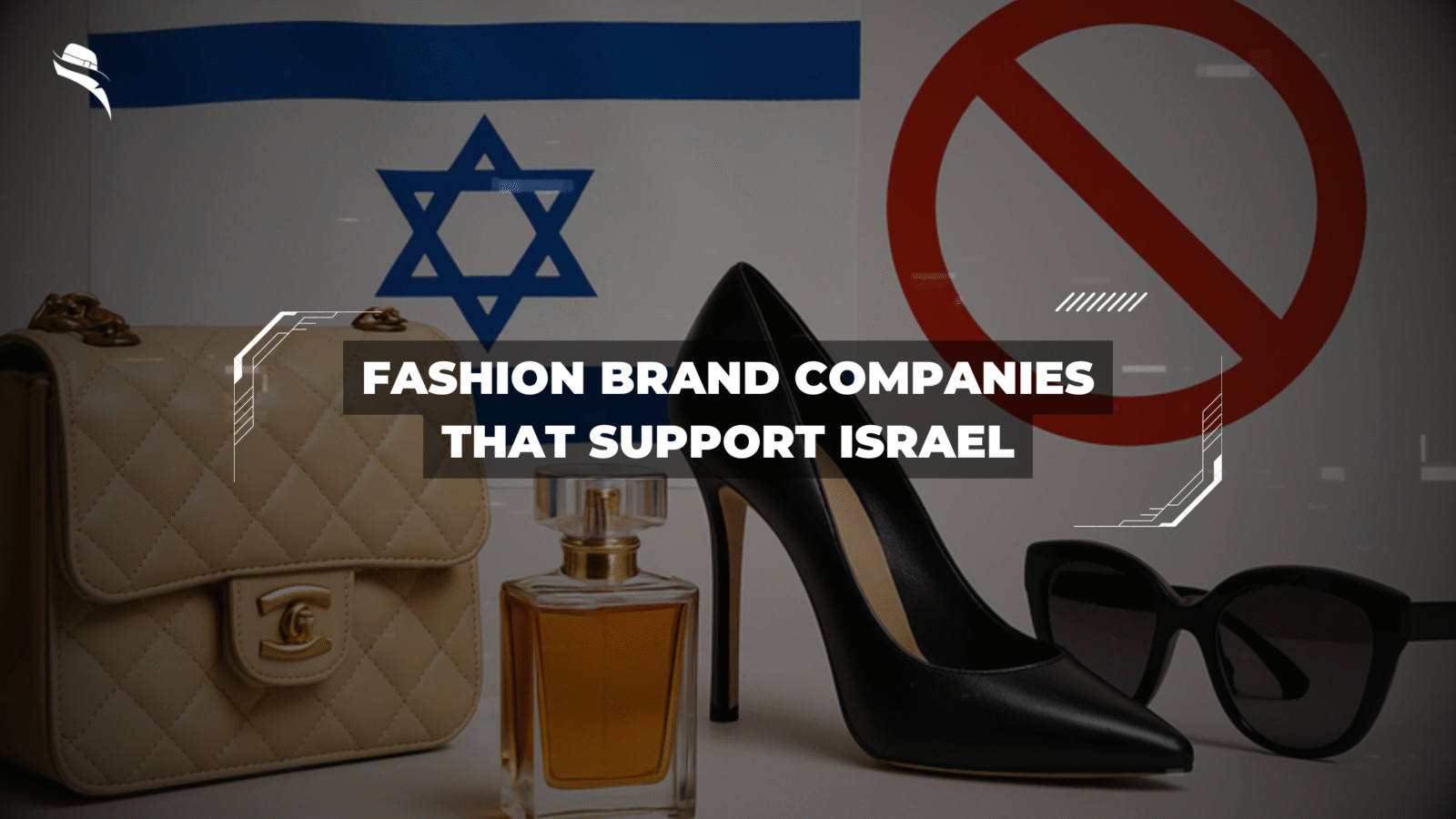

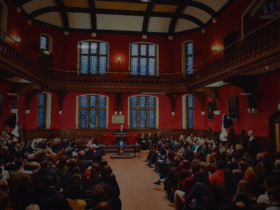
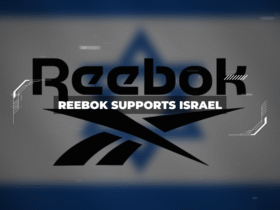
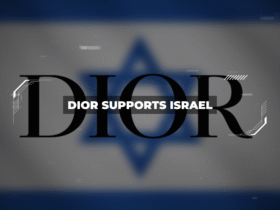
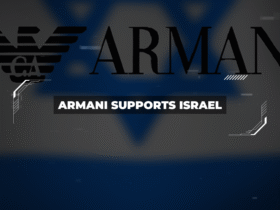
1 Comment